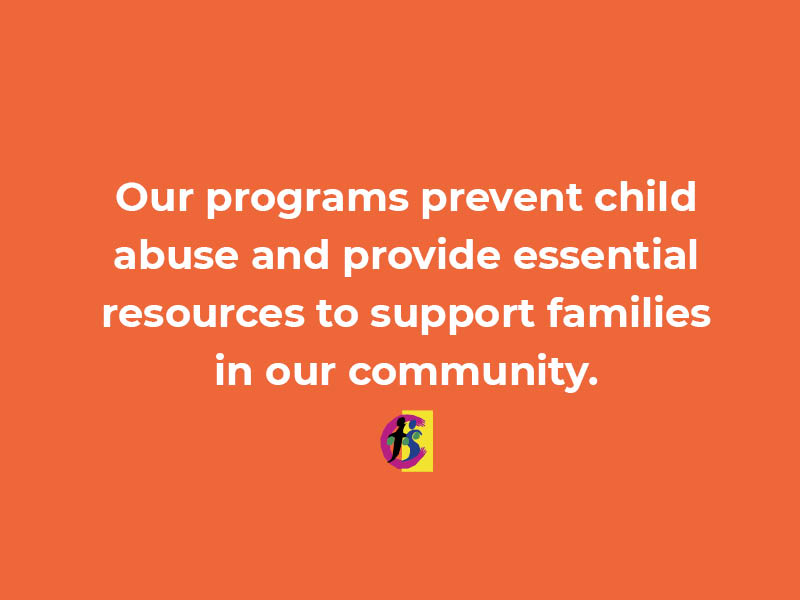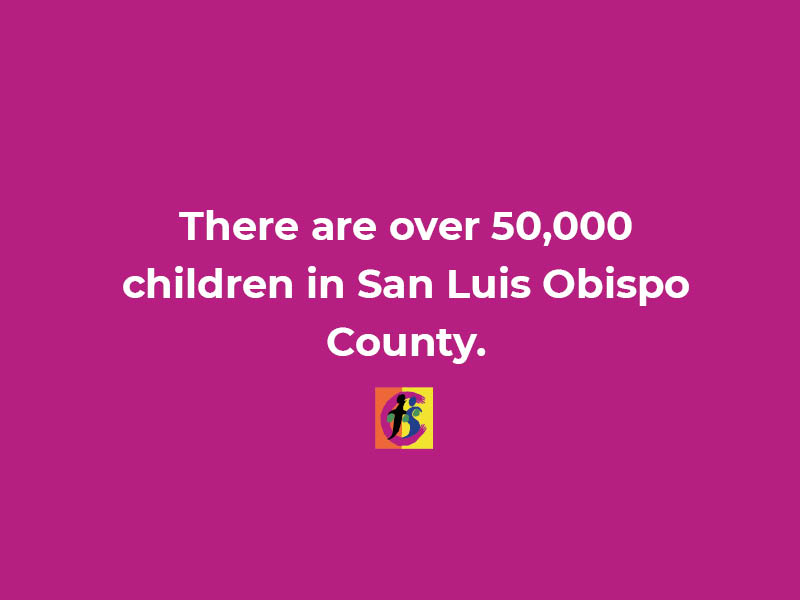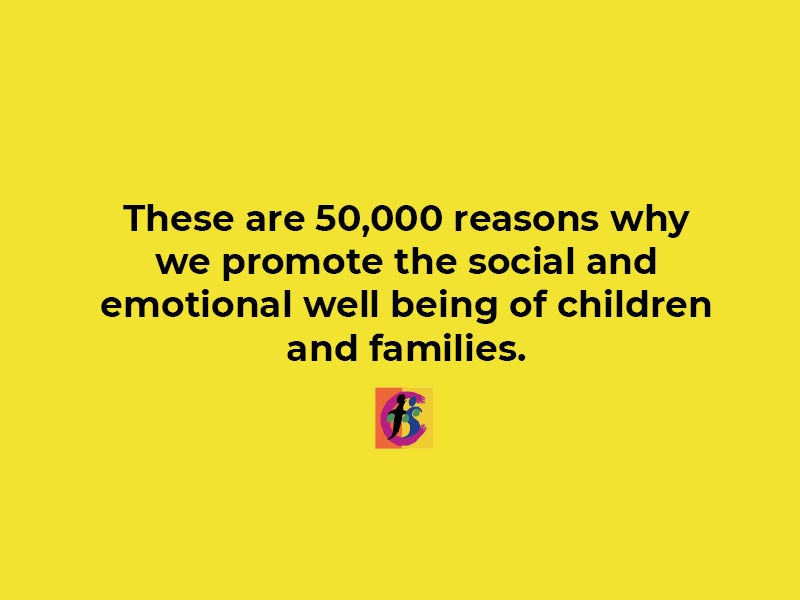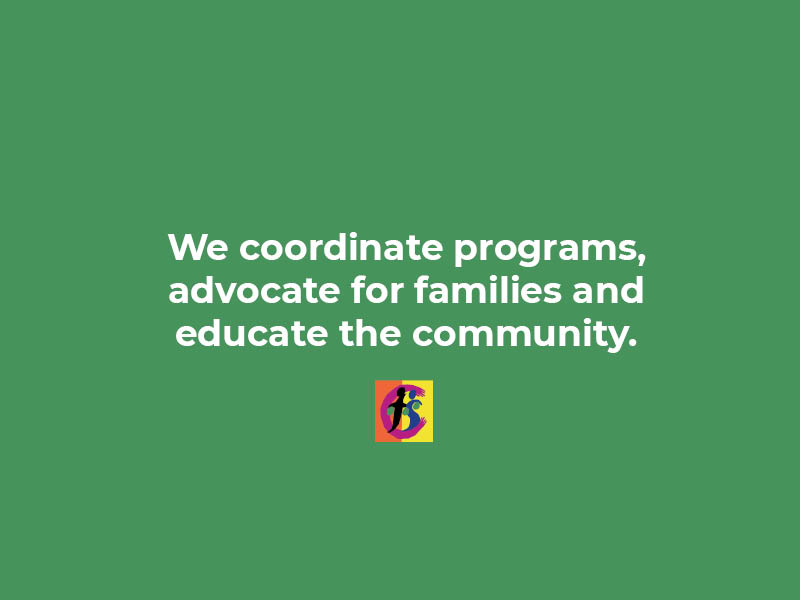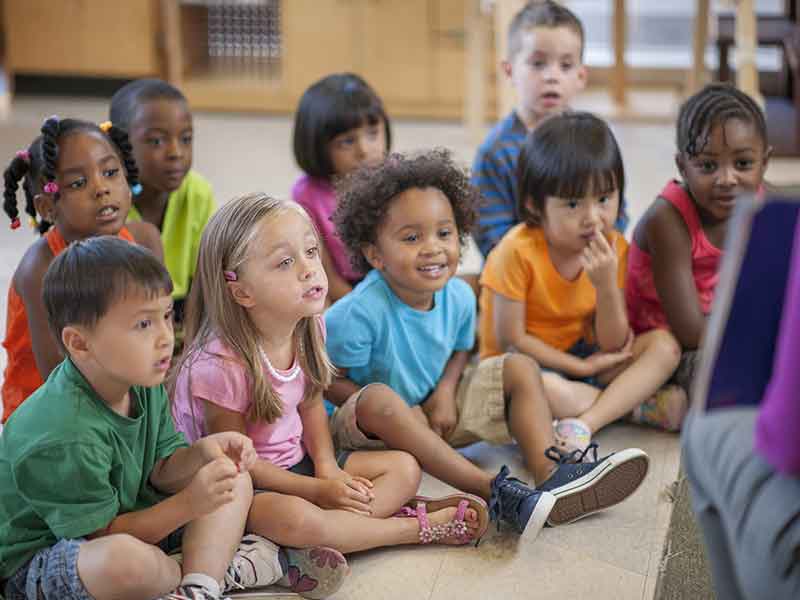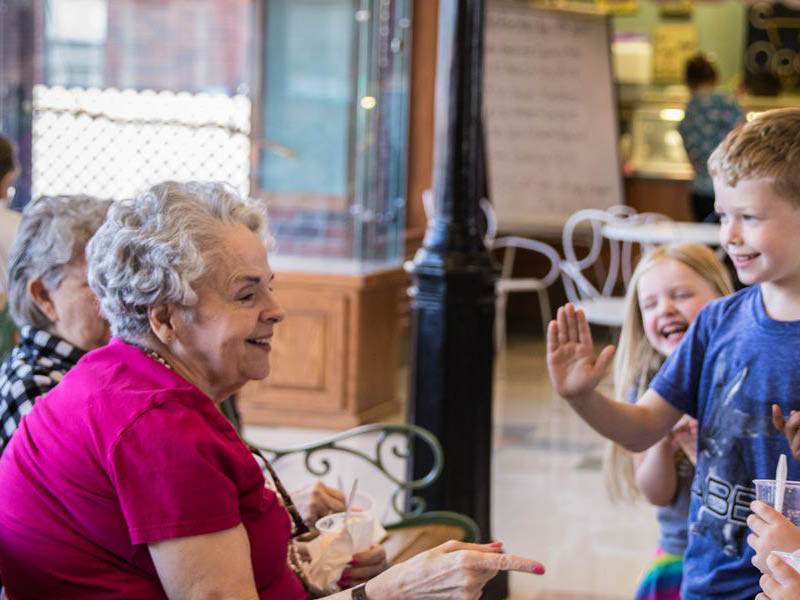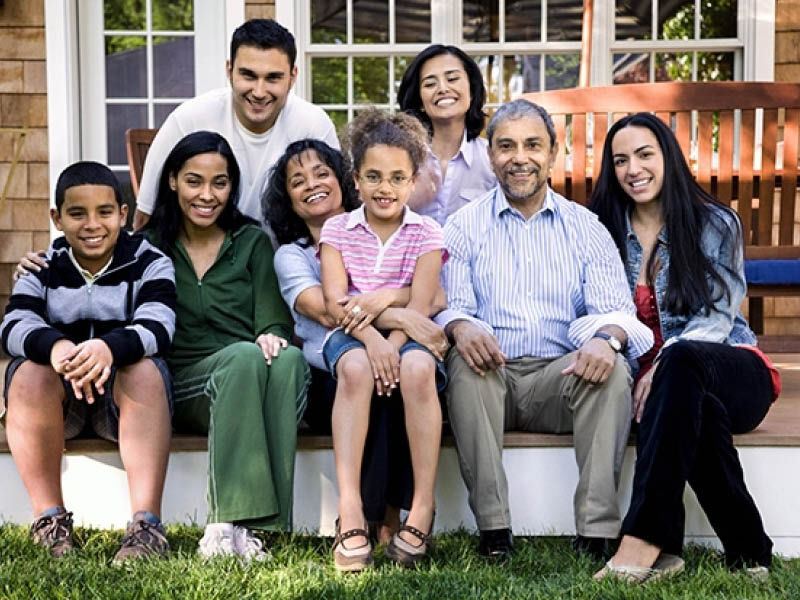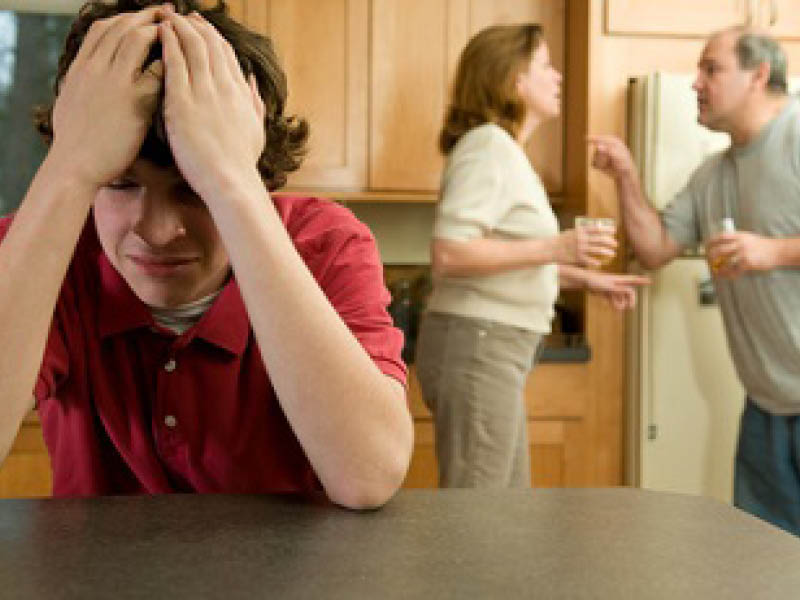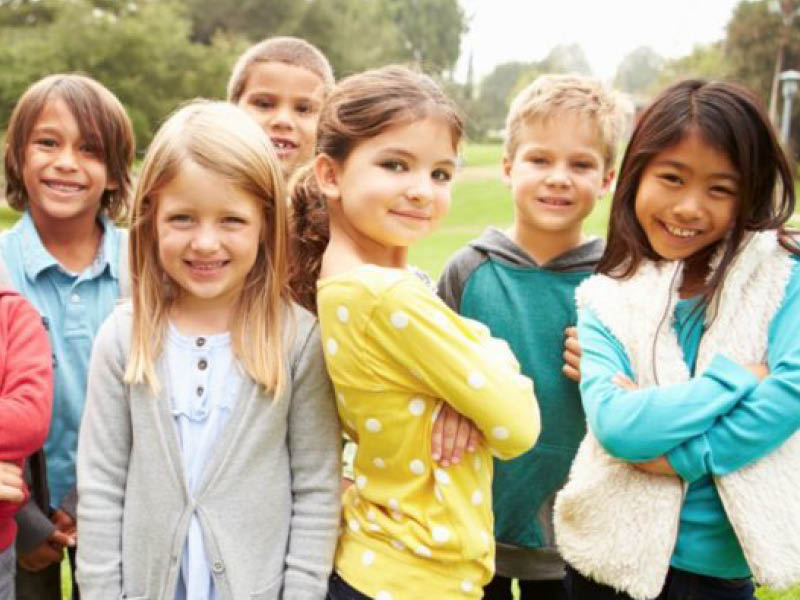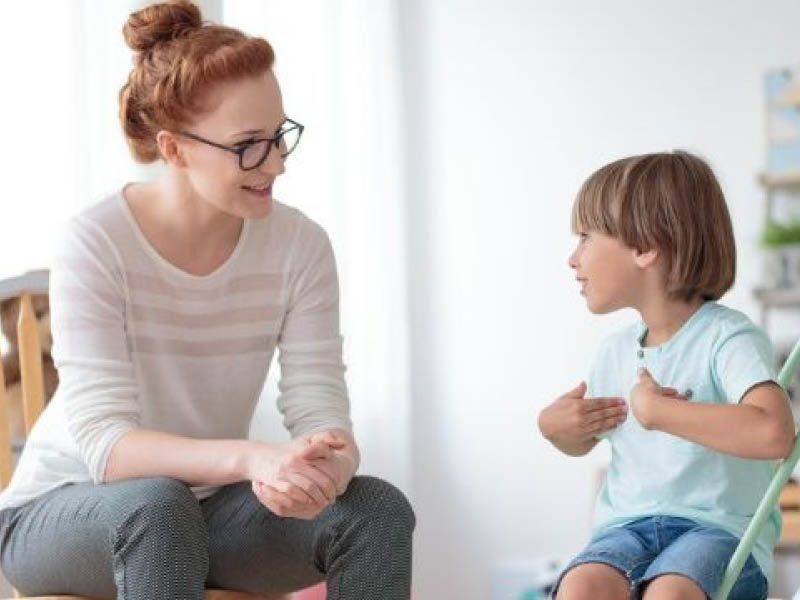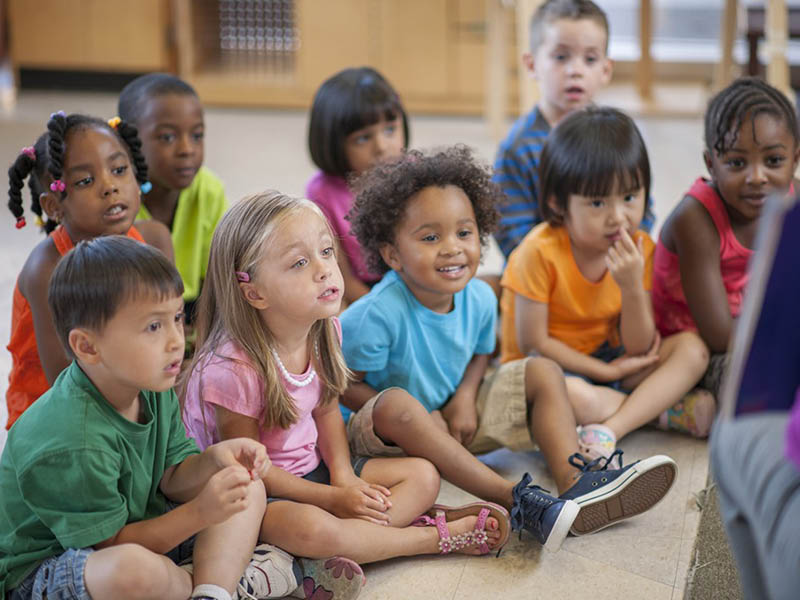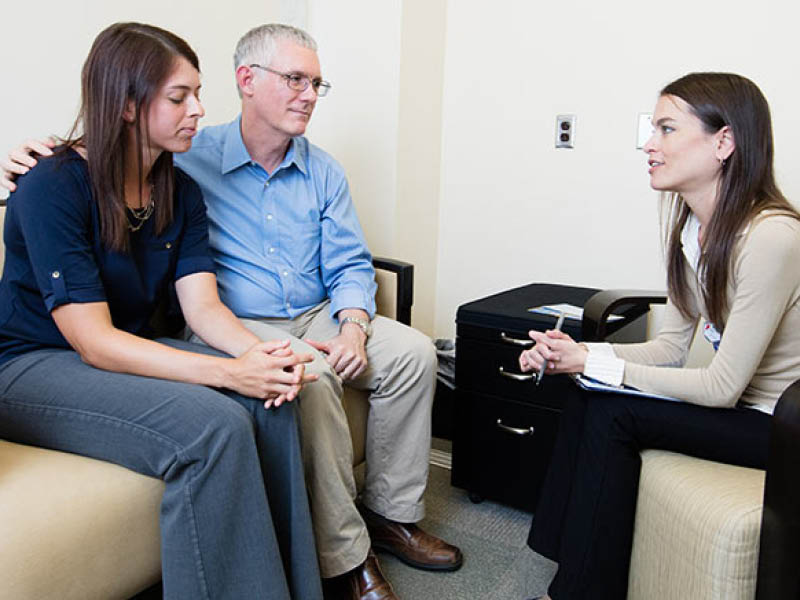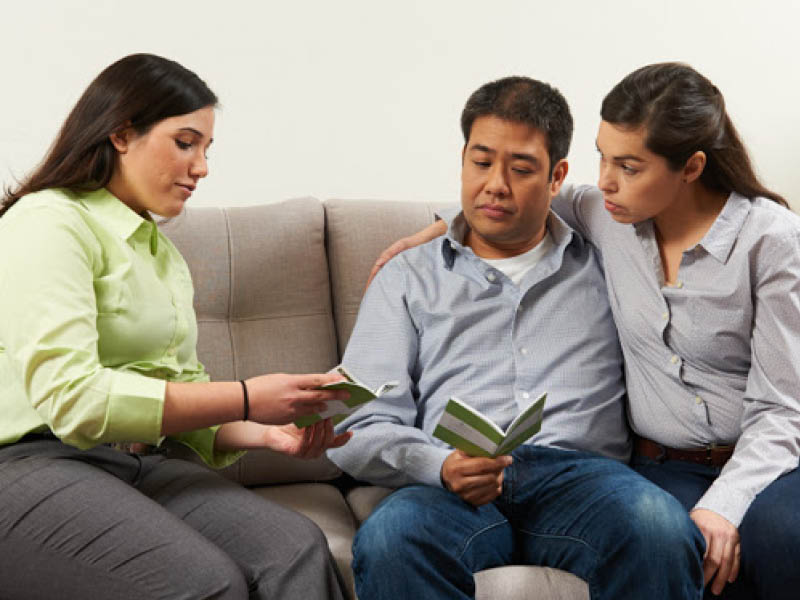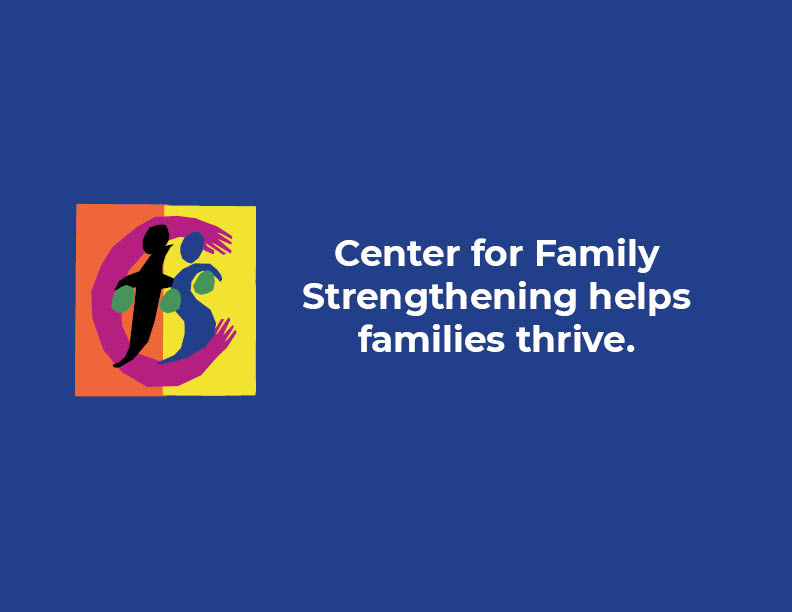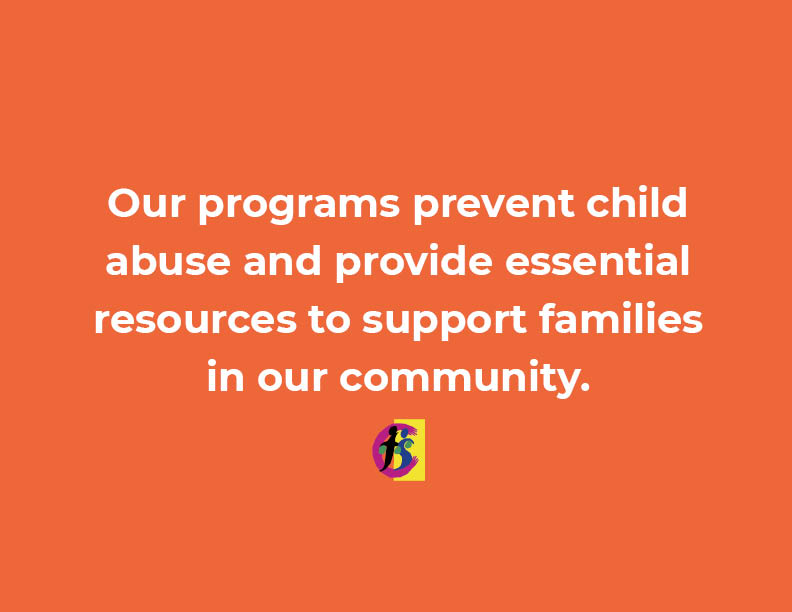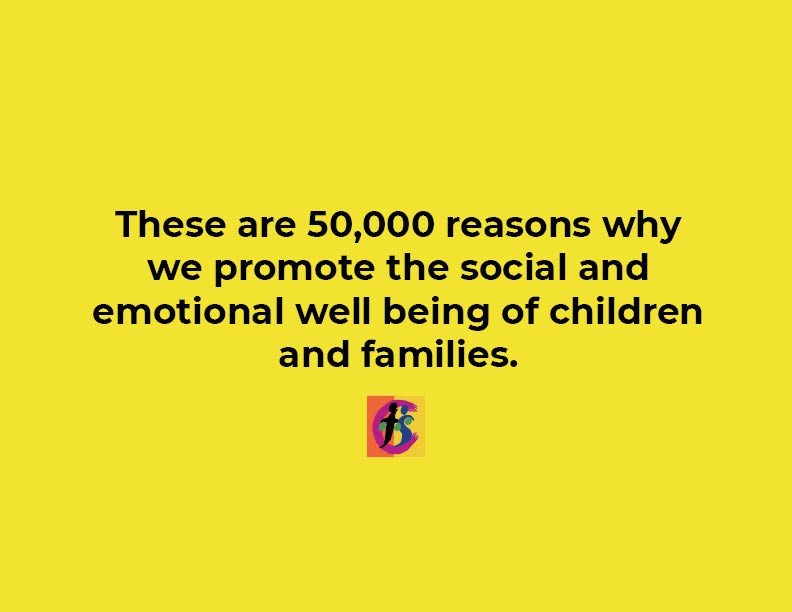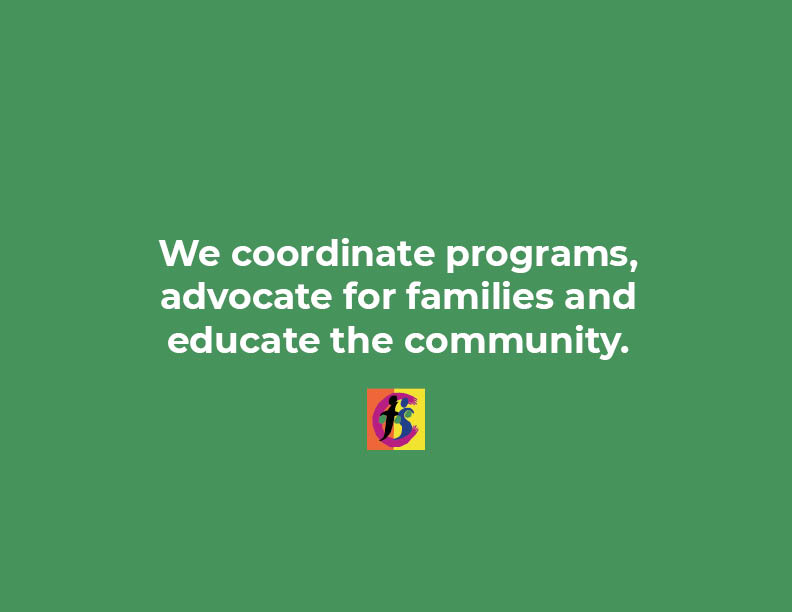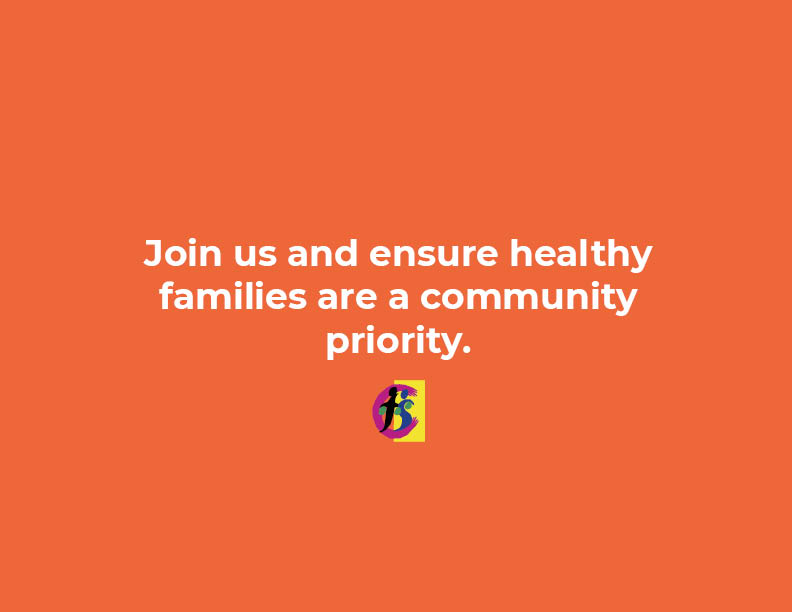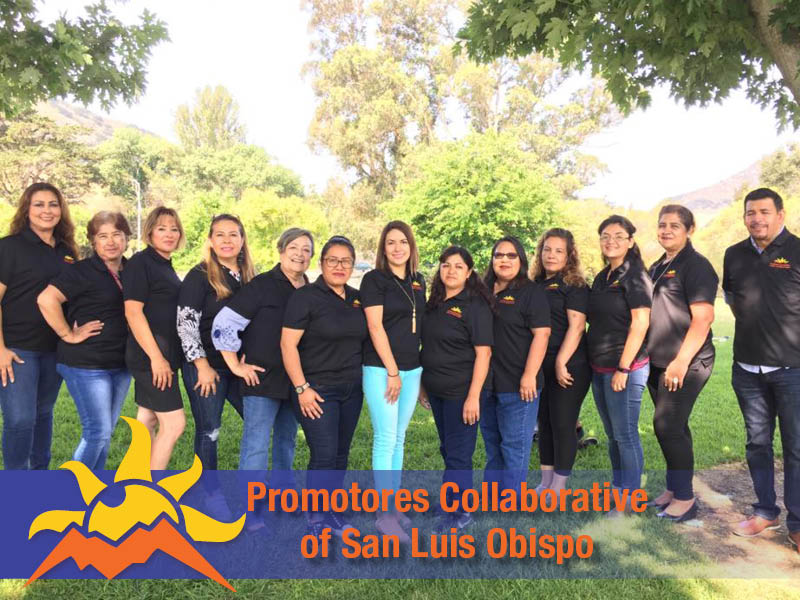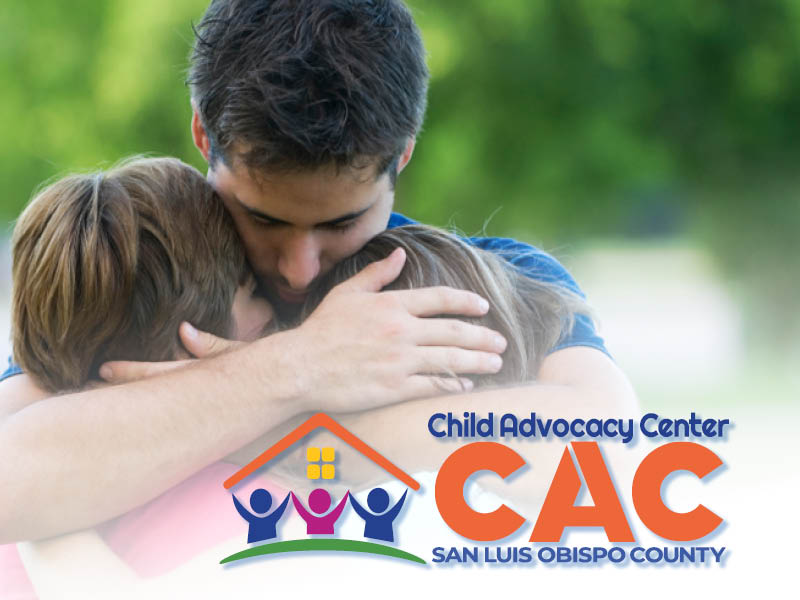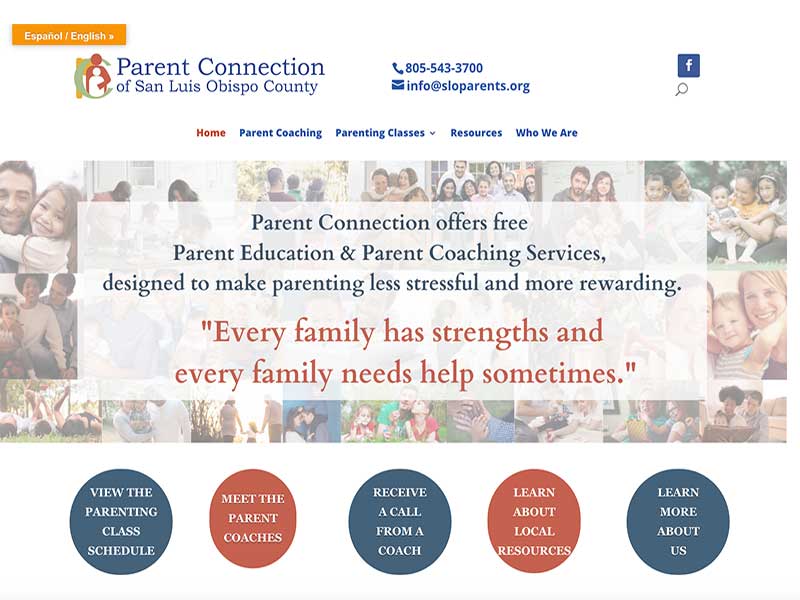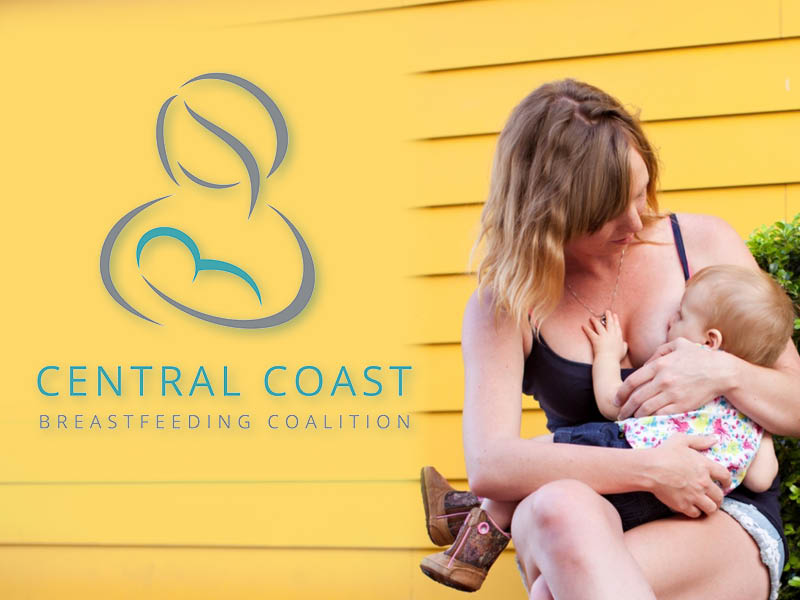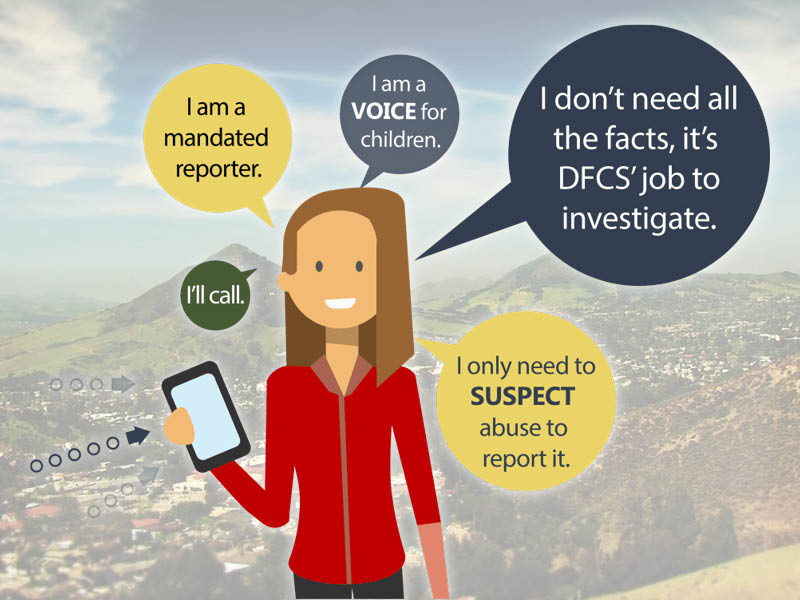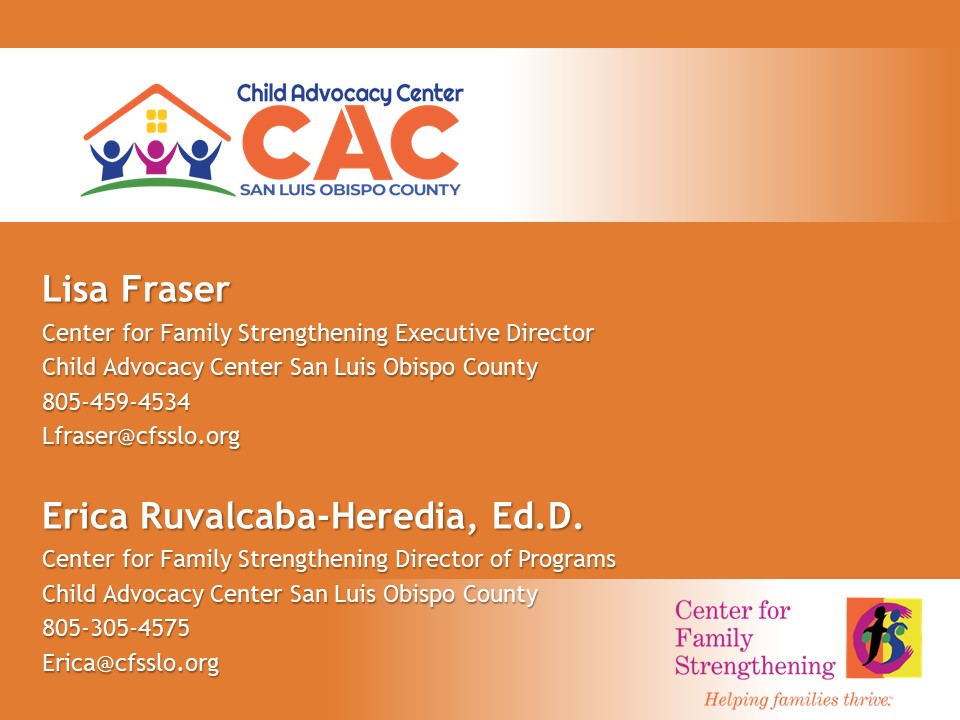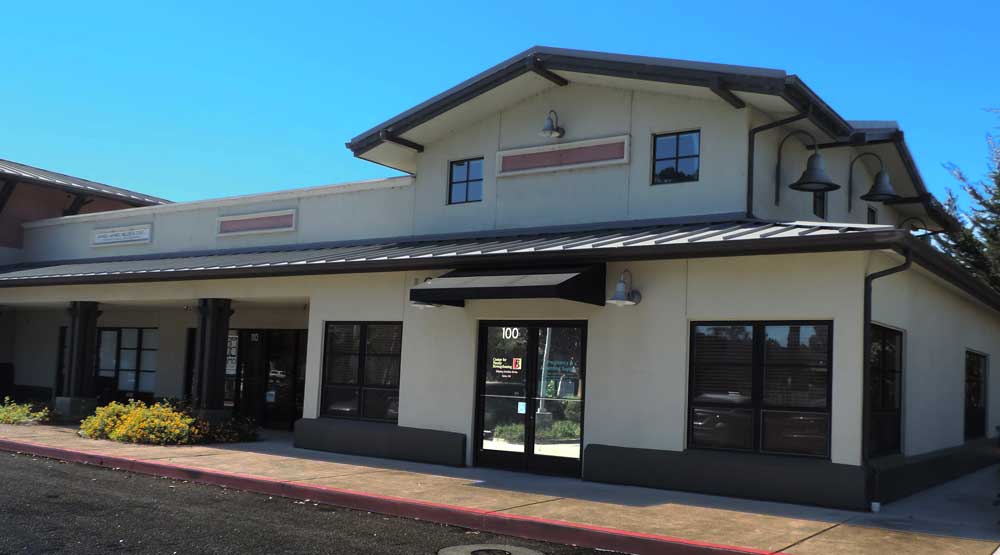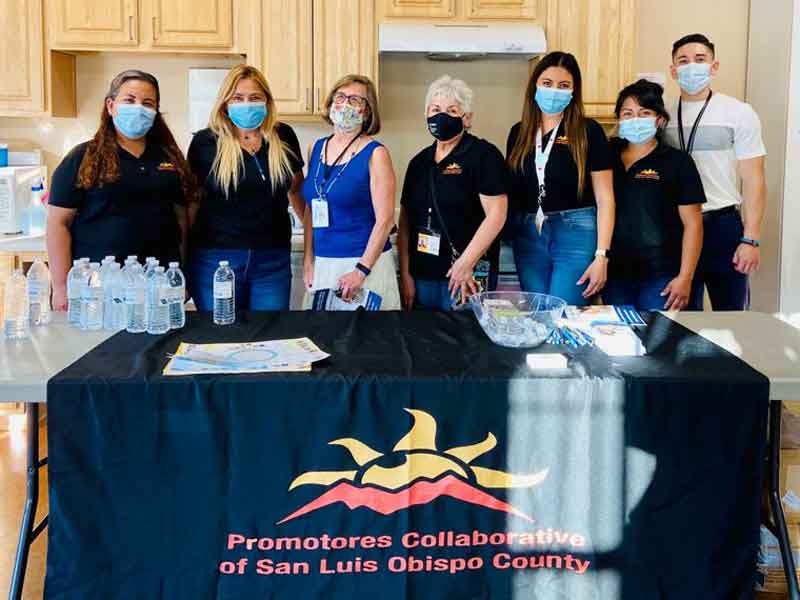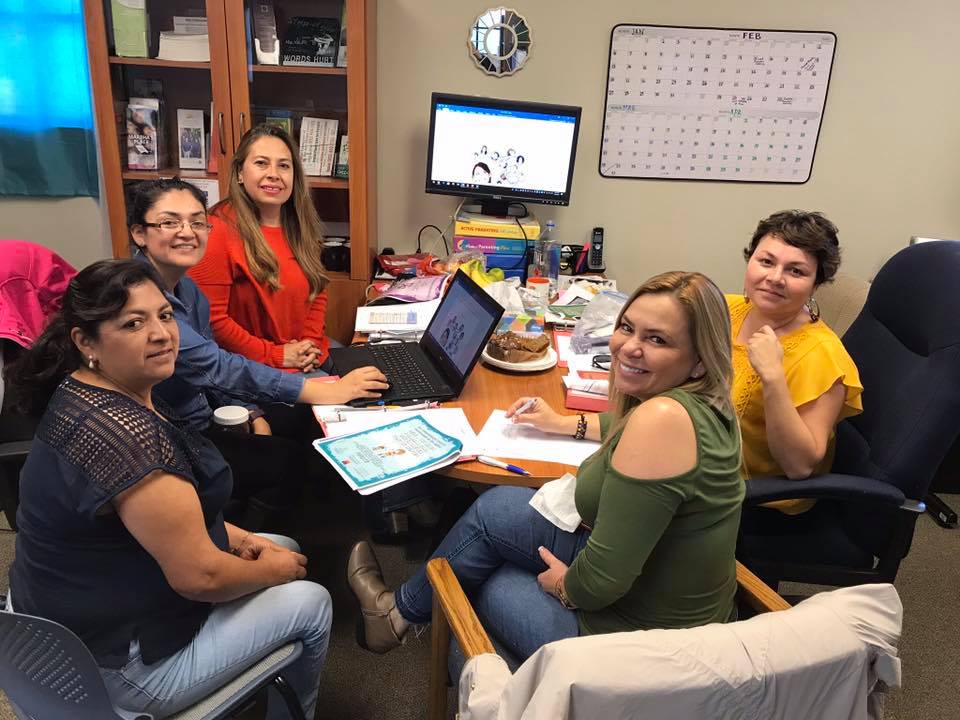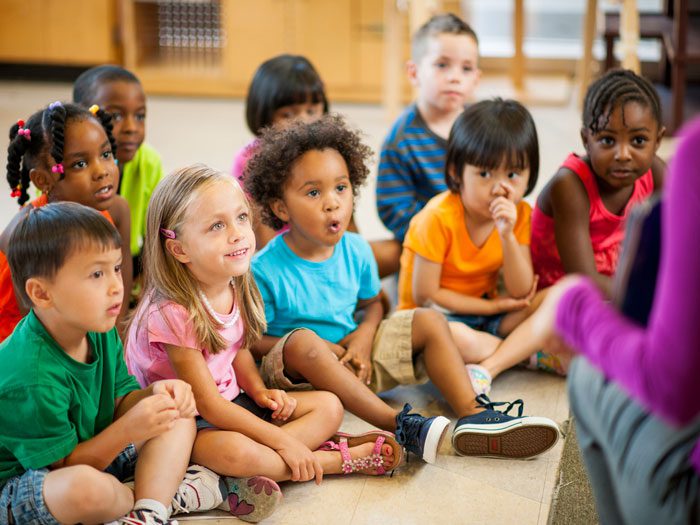Center for Family Strengthening
3480 Higuera St Suite 100, San Luis Obispo, CA 93401
805-543-6216 info@cfsslo.org
Get Involved
One in ten children suffers from child abuse. Child abuse is preventable. Our programs make positive, systemic changes in the lives of families. Strong kids come from strong families. CFS helps families become and stay strong with programs to prevent child abuse and provide essential resources to support families in need within our community. Donate to a program today! To learn more and contribute in other ways, please contact us directly.
DONATE NOW
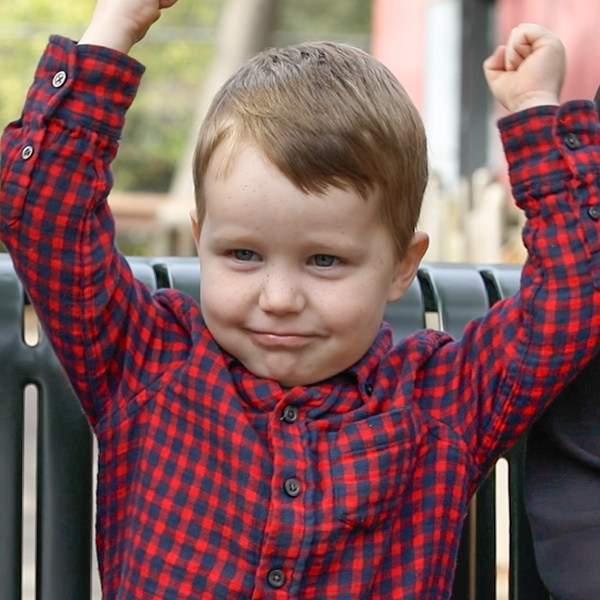
Donate today and support vital programs for families in need!
There are over 50,000 children in San Luis Obispo County. These are 50,000 reasons to support programs that promote the social and emotional well being of children and families.
Join us and ensure healthy families are a community priority.
FAQ
Frequently Asked Questions
What is the mission of Center for Family Strengthening?
Center for Family Strengthening (CFS) is dedicated to strengthening families through education and advocacy. CFS manages primary prevention programs for families that provide parent education, community outreach, and healing services for child abuse victims. In addition CFS partners closely with family support organizations in SLO County to provide resources to families in need, protect children from abuse and neglect, and ensure that strong families are a community priority.
Center for Family Strengthening (AKA San Luis Obispo County Child Abuse Prevention Council) was founded by a group of concerned citizens and professionals. In 1988 the San Luis Obispo County Board of Supervisors designated Center for Family Strengthening as the self-governing entity responsible for local efforts to prevent and respond to child abuse and neglect. To learn more about the purpose of Child Abuse Prevention Councils, visit Best Practice Guidelines for California’s Child Abuse Prevention Councils. Link: https://strategiesca.org/wp-content/uploads/2020/07/CAPC_Best_Practices_ADA_7.10.20.pdf
Center for Family Strengthening, a private non-profit 501(c)(3), receives 70% of its annual budget from individual donors, private grants, private foundations, corporations, and other community organizations with the remaining 30% coming from government contracts to provide critical family services to thousands in our community each year.
How do I report suspected child abuse?
As a mandated reporter in San Luis Obispo County, if you suspect child abuse or neglect, YOU MUST:
- Immediately call Child Welfare Services (CWS) 24-Hour Hotline
- 805-781-KIDS (5437) or 1-800-834-KIDS
- Complete and file a Suspected Child Abuse Report (SCAR) form # SS8572, located at CA Suspected Child Abuse Report (SCAR) Form 8572. The Social Worker you speak with when calling the CWS hotline will inform you where to fax/email the SCAR form.
- Retain a legible copy of the SCAR Report
- YOU are responsible for making this report. DO NOT ALLOW your supervisor/principal to make the report for you or assume because another co-worker has some of the same information that they will make the report.
- Do not attempt to investigate, conduct interviews or interfere with the information you hold.
- Remember that you are to report SUSPECTED abuse – you are not required to have witnessed or have complete proof of the incident. You are obligated by law to report what you observe or what you are told that caused suspicion the child is being physically, sexually or emotionally abused or neglected. When in doubt, call CWS and get their input about the scope of your report.
Learn more here, https://www.slocounty.ca.gov/Departments/Social-Services/Mandated-Reporter.aspx
Who is a mandated reporter?
Mandated reporters are persons who, as a result of their profession, are more likely to be aware of abuse or neglect of children, persons with disabilities, or elders. Being a mandated reporter means that by law you must report any suspected abuse of a child, dependent adult or elder immediately to the county Adult Protective Services (APS) or Child Welfare Services (CWS). Learn more here, https://www.slocounty.ca.gov/Departments/Social-Services/Mandated-Reporter.aspx
How do I become a Mandated Reporter?
A Mandated Reporter training will provide the following:
- Learn how to report incidents of suspected child abuse
- Understand what occurs after a report,
- Gain knowledge about the Child Welfare Services system and resources for families in the community.
- An increased understanding of trauma and resilience
- Expanded awareness of SLO County community-based resources
- Knowledge of family strengthening approaches and practices
For information about the next Mandated Reporter Training or to schedule a presentation or training for your site, please contact us at 805-543-6216 or support@cfsslo.org.
How does child abuse impact children, families and communities?
Child maltreatment is a persistent problem within San Luis Obispo County. Although it is a hidden social ill, its impact is significant. Child maltreatment impacts not just the child, but the family, the community, and society at large. In California, as many as one out of every 19 children is suspected of being maltreated. The impact of maltreatment not only morally degrades our society, it significantly hurts our economy. In fact, the physical, mental, and emotional effects of maltreatment persist long after child maltreatment occurs, and result in ongoing costs to every sector of California.
The cumulative financial impact to San Luis Obispo County for the 528 verified survivors of maltreatment in 2019 is $195,000,000. Though these costs are accrued over the course of the victim’s life, the community will continue to occur the same cost each year until we are able to reduce and ultimately end child abuse.
CHILD WELFARE – $36,239,873
Victims may require intervention services, foster care, and counseling services.
EDUCATION – $8,473,715
Maltreated children are 77 percent more likely to require special education.
CRIMINAL JUSTICE – $4,325,605
Maltreated children are 59 percent more likely to be arrested as juveniles, and 28 percent more likely to have an adult criminal record.
HEALTHCARE – $49,776,931
Victims may require hospital care, mental health services, and other medical services during childhood, and have a higher incidence of physical and mental health issues throughout adulthood.
LIFETIME PRODUCTIVITY – $96,002,540
Victims are more likely to be unemployed and rely on public assistance that leads to diminished earning potential.
FATALITY – $0
Accounts for the victims’ lost wages and healthcare costs.
What is child maltreatment?
Why does child abuse occur? Although not all causes of child abuse and neglect are known, a significant body of research has identified several risk factors and protective factors associated with child abuse. Studies also have shown that when there are multiple risk factors present, the risk is greater. For example, lack of preparation or knowledge of child development. Parents may lack an understanding of their children’s developmental stages and hold unreasonable expectations for their abilities. They also may be unaware of alternatives to corporal punishment or how to appropriately discipline their children at different ages. Parents also may lack knowledge of the health, hygiene, and nutritional needs of their children.
These circumstances, combined with the inherent challenges of raising children, can result in otherwise well-intentioned parents causing their children harm or neglecting their needs. Critical issues surrounding parenting, financial or other environmental stressors (substance abuse) difficulty in relationships, and depression or other mental health problems can all lead to abusive or neglectful behavior.
Neglect occurs when parents are unable or unwilling to provide for basic needs, such as food, shelter, medical care, educational needs, and emotional needs, of a child. We all have a role to play in building strong communities in which families and children are valued and supported. It is in these kinds of communities that children are safest from abuse and neglect.
The Center for the Study of Social Policy, https://cssp.org/our-work/project/strengthening-families/, has developed the “Five Protective Factors” which can help individuals better understands the role they can play in child abuse and neglect prevention.
1) Parental Resilience: The ability to cope and bounce back from challenges.
2) Social Connections: Friends, family, neighbors, and others who provide emotional support and assistance.
3) Knowledge of Parenting and Child Development: Accurate information about raising children and appropriate expectations for their behavior.
4) Concrete Support in Times of Need: Being able to cover day-to-day expensed and unexpected costs that come from time to time, access to supports such as health services, counseling, and other services
5) Children’s Social and Emotional Development: A child’s ability to interact positively with others and communicate his or her emotions effectively.
How do your programs prevent child abuse and neglect?
Isolation, intense stress, lack of basic needs and lack of healthy, supportive community are some of the primary risk factors that can lead to child maltreatment.
All CFS programs build the Five Protective Factors in families. Though parent education, increasing connection to community resources, providing support during and after times of crisis, and advocating for families with other service providers, we mitigate the risk factors the increase the chance for abuse and neglect.
The Center for the Study of Social Policy, https://cssp.org/our-work/project/strengthening-families/, has developed the “Five Protective Factors” which can help individuals better understands the role they can play in child abuse and neglect prevention.
1) Parental Resilience: The ability to cope and bounce back from challenges.
2) Social Connections: Friends, family, neighbors, and others who provide emotional support and assistance.
3) Knowledge of Parenting and Child Development: Accurate information about raising children and appropriate expectations for their behavior.
4) Concrete Support in Times of Need: Being able to cover day-to-day expensed and unexpected costs that come from time to time, access to supports such as health services, counseling, and other services
5) Children’s Social and Emotional Development: A child’s ability to interact positively with others and communicate his or her emotions effectively.
Research shows that when these Protective Factors are present families are better able to cope in tough times, demonstrate efficacy in accessing resources, recover from adversity with greater ease, and have an increased understanding of their children’s needs.
How do I donate to a program?
Your donations can be designated to a particular program or donated as an unrestricted gift. To learn more about how to contribute to a Center for Family Strengthening program visit [Click Here] or call 805 543-6216.
How do I contact you for support services, or to refer a family?
Phone: (805) 543-6216
Email: support@cfsslo.org [Contact form Link]
Address: 3480 South Higuera, Suite 100, San Luis Obispo 93401
Promotores Collaborative of San Luis Obispo County
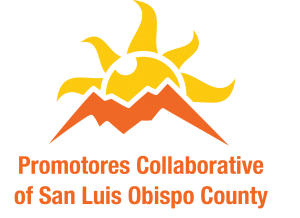 We build, foster, and support a network of Promotores throughout San Luis Obispo County by providing training, emotional support, and materials to empower a healthier community.
We build, foster, and support a network of Promotores throughout San Luis Obispo County by providing training, emotional support, and materials to empower a healthier community.
COVID-19 Vaccine Education & Outreach Partnership with SLO County Public Health Department
The Promotores Collaborative works with the SLO County Public Health Dept. to provide canvassing, outreach services and event planning to support Public Health’s mobile vaccine clinics in under-served areas in San Luis Obispo County. Learn more in our health outreach video library available in Spanish, Mixteco and English! Local COVID-19 health resources can be found here: SLO County Public Health COVID-19 Information.
All County Promotores Meetings
Our quarterly meetings provide resource updates for providers working with immigrant communities, as well as opportunities to exchange ideas and improve our support to children and families. Community organizations and agency partners are welcome to attend this meeting.
Contact Us! To join our next meeting, or for more information about the Promotores Collaborative and how to utilize the services provided, please contact the Promotores Collaborative Director, Erica Ruvalcaba-Heredia at erica@cfsslo.org or 805-305.4575.
Visit us on social media at https://www.facebook.com/PromotoresSLO and https://www.instagram.com/slopromotores/
The Promotores conducting SLO County Public Health COVID-19 vaccine education.
The Promotores planning outreach activities in the community!
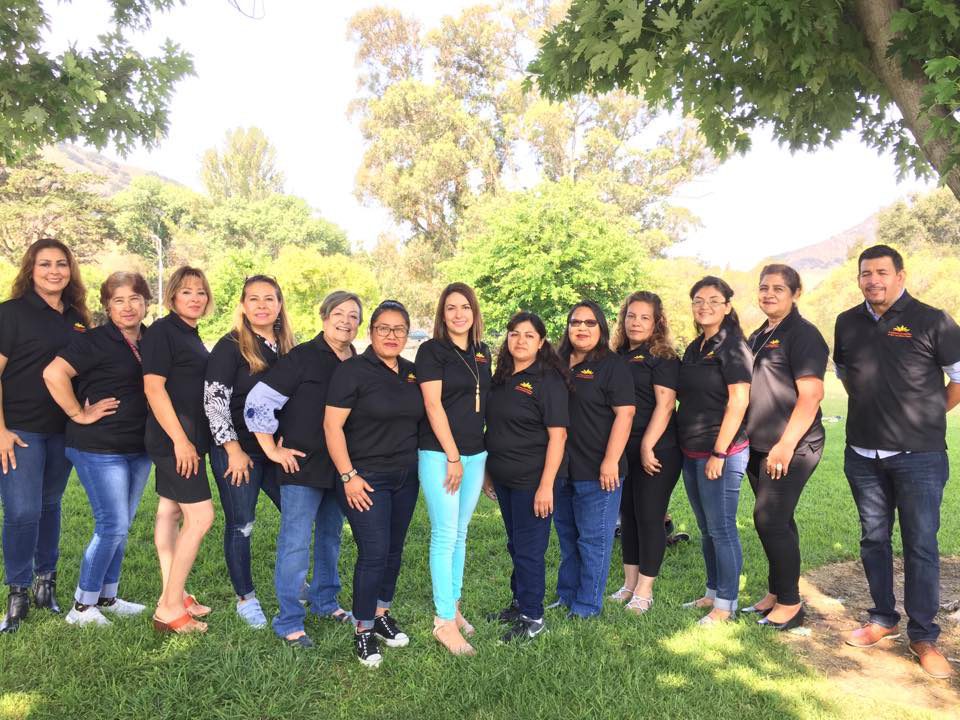
Promotores Collaborative of San Luis Obispo
 Mission: To build, foster, and support a network of Promotores throughout San Luis Obispo County by providing training, emotional support, and materials to empower a healthier community.
Mission: To build, foster, and support a network of Promotores throughout San Luis Obispo County by providing training, emotional support, and materials to empower a healthier community.
Vision: We envision sustainable, diverse, comprehensive and equal access to healthcare and services among all our members of our community
Guiding Principles:
- All people have a right to equal access to health services.
- Healthy communities utilize culturally and linguistically compatible tools, resources, and information to make informed, autonomous decisions about their health and wellness.
- Linguistic and cultural sensitivity throughout the health care system promote equality among diverse community members.
- Empowerment is key to sustainably supporting healthy communities.
- Collaboration and alliance building are essential in breaking down barriers to healthy living.
Promotores Collaborative Goal:
To develop a sustainable, diverse, and comprehensive culture that promotes equal access to community resources and services among all members of the Hispanic community in San Luis Obispo County.
In order to do so, we must ensure that the basic needs of all San Luis Obipso County residents are met. Access to inclusive and wide-ranging resource options is a fundamental component to sustaining a truly healthy community; without it, we can cannot begin to tackle the countless health issues that disproportionately affect the most vulnerable in our communities. After completing 40 hours of training, the Promotores are provided with the tools needed to work as advocates, change agents, and partners with local agencies for positive change.
For more information about the Promotores Collaborative and how to utilize the services provided, please contact the Promotores Collaborative Director, Erica Ruvalcaba-Heredia at erica@cfsslo.org or 805-305.4575. Or visit us on Facebook at www.facebook.com/promotoreslo.
CAC
The Child Advocacy Center (CAC) of San Luis Obispo County is here to provide treatment and healing for child victims of abuse in our community. CAC streamlined services help reduce trauma to abused children so they can begin the process of healing.
The CAC brings together professionals from law enforcement, child welfare services, medical, mental health, victim advocacy and other agencies to ensure wellness, safety and justice for all child victims of abuse.
The fundamental goals of this coordinated child abuse prevention system are to:
1) Break the cycle of child abuse,
2) Reduce systemic trauma to child victims,
3) Improve investigations,
4) Increase prosecution and convictions, and,
5) Increase aftercare well-being of children and families.
If you have questions about CAC SLO County sevices please contact: Rocío Hernández, CAC Family Advocate Sevices Coordinator at 805-788-8242, Rhernandez@cfsslo.org
Parent Connection
Parent Connection of San Luis Obispo County offers parent education and coaching services, designed to make parenting less stressful and more rewarding.
Call the Helpline at 805-543-3700 for resources and community referrals.
Find a current listing of parent education classes, resources, support groups and workshops at www.sloparents.org
Coaching support in English,
Bill Spencer: 805-904-1411
Coaching support in Spanish,
Claudia Riley: 805-540-1223
The qualified Parent Coaches help parents and caregivers sort through conflicting advice and minimize information overload, including:
- Creating age-appropriate strategies, which address the child’s unique challenges.
- Building parental strengths and drawing on the parent’s inner wisdom.
- Encouraging self-care practices woven into daily life.
- Increasing a parent’s self-awareness, confidence, and competence, with realistic progress that leads to sustainable, positive change.
Through collaboration and networking with agency and community partners we ensure that families in our communities have the support they need to meet their goals, raise healthy children, and stay connected to resources. For over a decade we’ve helped 5,000+ parents and caregivers reduce stress and gain confidence.
Each year, we teach over 4,500 children protective and safety skills, including the difference between safe and unsafe touching.
Kids Toolbox
Our parent education approach includes empowering parents to protect their children from predators and abuse. Kidz Toolbox for Personal Safety is a curriculum that includes lessons for Preschool, Kindergarten, 2nd Grade, and Special Needs students and their parents. Our qualified Educators teach assertiveness skills and model how to ask for help if they have a problem. Studies show that these are key skills lacking in children at risk for abuse.
The lessons vary according to the grade level, and the skills targeted for practice are developmentally appropriate. At all grade levels, children have opportunities for skill practice and transfer of learning. To learn more call and schedule lessons for your site call 805-543-6216.
Central Coast Breast Feeding Coalition
The Central Coast Breastfeeding Coalition aims to create a healthier community through the promotion of breastfeeding and continued development of community resources and support for nursing families. The Coalition provides support for nursing families including maternity classes, telephone support, lactation consultants, support groups, breast pumps and WIC.
The Importance of Breast Milk
Breast milk is not only nourishment but is also medicine for infants. It contains antibodies, disease-fighting stem cells, anti-virus, anti-allergy, anti-parasitic, and anti-cancer properties that provide both short and long-term protection. Breast milk contains growth factors, enzymes, hormones, probiotics and other nutrients that help infants to grow and to develop optimally. Breastfeeding provides benefits to the mother with increased bonding with baby, better healing post-delivery, less incidence of postpartum depression, and decreased likelihood of developing breast or ovarian cancer.
Learn more and get involved at https://www.centralcoastbreastfeeding.com/
Medically Fragile Homeless (MFH) Program
The Medically Fragile Homeless (MFH) program provides individual housing for persons in San Luis Obispo County who are homeless with a medically-verified need for non-congregate 24/7, temporary housing. Housing may be requested for 3 to 90 days depending upon the need verified by a physician and availability.
All referrals are processed by the San Luis Obispo County Department of Social Services. The person, or family, must not only be homeless but medically vulnerable.
The primary goal is physical recovery from surgery, illness, injury or high- risk pregnancy through the stability of housing and services. MFH also provides shelter to persons who have need of housing to allow the person to die in the dignity and stability of housing with the care of hospice.
MFH provides supportive services and coordinated case management to ensure physical recovery, access to income sources, connection to services and a more permanent housing alternative at exit of the program.
The program does not provide medical care for those who are housed but ensures that the person has access to meet their basic needs, including transportation to medical appointments.
To learn more about the program services contact Program Director, Carrie Collins at (805) 794-0217.
Adult Protective Services (APS) Referrals:
1. A referral is made to Adult Protective Services, 805-781-1790 during business hours, Mon-Fri, 8 am to 5 pm. Or call the 24-Hour Line, TOLL FREE, 1-844-729-8011.
2. An APS case manager completes an assessment to determine APS eligibility
3. If the applicant is eligible, there is a space available, and it’s determined that placement is needed, then a MFH program referral is made.
Family Referrals:
CalWORKs families actively receiving Housing Support Program Services (HSP) may be eligible for a referral once their need has been assessed by their HSP Case Manager and as units become available. Please contact your case manager directly or for help connecting to your case manager, call 805-781-1600, Mon – Fri, 8 am – 5 pm.
The person/family must be able to take care of their Activities of Daily Living (ADLs) or has secured the required assistance.
Dental Care for Kids
The SLO County Public Health Department-Child Health and Disability Prevention Program (CHDP) established a partnership with Center for Family Strengthening to improve access to urgent dental treatment for uninsured children who cannot qualify for Medi-Cal, and have received a referral concerning dental disease from a CHDP well child exam. To learn more call 805-543-6216.
Grant funds and community donations support reimbursement of participating dentists for an initial exam, x-rays and approved treatment plan. Some examples are extractions, fillings, crowns and nitrous oxide gas.
- CHDP refers children to dentists, approves funding for treatment plan, and care coordinates the patient.
- Center for Family Strengthening serves as the non-profit 501 (c) 3 so we may receive community donations to help children with acute dental needs.
- CFS provides fiscal management services and disperse payments to the dental providers in a timely manner. In addition CFS tracks the number of children served and prepares reports on the outcomes of this vital community resource.
Nurse-Family Partnership
Center for Family Strengthening serves as the Community Advisory Board for Nurse-Family Partnership® (NFP) of San Luis Luis Obispo County, an evidence-based, community health program that helps transform the lives of vulnerable mothers pregnant with their first child. Each mother served by NFP is partnered with a registered nurse early in her pregnancy and receives ongoing nurse home visits that continue through her child’s second birthday. Meet Yesenia, a Nurse Family Partnership success story! https://cfsslo.org/meet-yesenia-a-nurse-family-partnership-success-story
Mandated Reporter of Suspected Child Abuse Training
Mandated reporters are persons who, as a result of their profession, are more likely to be aware of abuse or neglect of children, persons with disabilities, or elders. Being a mandated reporter means that by law you must report any suspected abuse of a child, dependent adult or elder immediately to the county Adult Protective Services (APS) or Child Welfare Services (CWS). Learn more here, https://www.slocounty.ca.gov/Departments/Social-Services/Mandated-Reporter.aspx
A Mandated Reporter training will provide the following:
- Learn how to report incidents of suspected child abuse
- Understand what occurs after a report,
- Gain knowledge about the Child Welfare Services system and resources for families in the community.
- An increased understanding of trauma and resilience
- Expanded awareness of SLO County community-based resources
- Knowledge of family strengthening approaches and practices
For information about the next Mandated Reporter Training or to schedule a presentation or training for your site, please contact us at 805-543-6216 or support@cfsslo.org.


